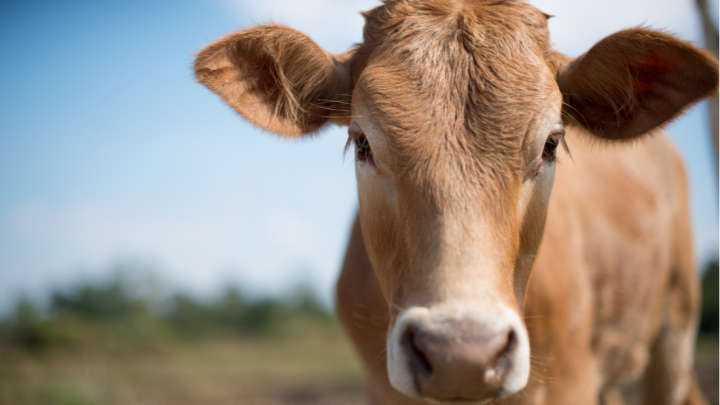
Cattle Show An "Insane" Ability To Produce Antibodies To HIV!
Share
Cows may play an unlikely role in the fight against HIV. In a series of experiments, scientists have found that cattle have an insane ability to rapidly produce antibodies to the virus, and could help in the production of a vaccine to tackle the devastatingdisease.
The work, carried out by the US National Institutes of Health, found that cattle infected with HIV antigens began producing an antibody known as bNAb (broadly neutralizing antibodies), which latches onto the only exposed surface antigen on the virus. After just 42 days, they found the cattles antibodies could neutralize 20 percent of the HIV strains tested, and within 381 days this had risen to 96 percent. The paper has been published in Nature.
The response blew our minds, Dr Devin SokIt told BBC News. It was just insane how good it looked, in humans, it takes three-to-five years to develop the antibodies we're talking about. This is really important because we hadn't been able to do it period. Who would have thought cow biology was making a significant contribution to HIV?
Cattle do not naturally acquire HIV, as the virus has evolved from a primate version to specifically attack human cells. But the researchers were interested in how their bodies might react to the virus, as they bovine creatures immune system has unique features that they thought may allow them to produce potent antibodies in response to the infection.
They injected 117 calves with the virus antigens, and waited to see the response. The researchers were truly shocked by the speed in which it came. They think that due to the fact that the cows have a digestive system packed with bacteria in order to break down grass, the animals evolved an immune system that rapidly develops antibodies to keep these microbes in check.
In a few rare cases, humans have actually naturally produced these antibodies, but because this takes a fairly long period of time after infection, by the time the body is making them, the virus has already mutated to such a degree that it can overcome the antibodies. With the cattle, however, they were producing bNAbs within a matter of weeks.
The potent responses in this study are remarkable because cattle seem to produce bNAbs in a relatively short amount of time. Unlike human antibodies, cattle antibodies are more likely to bear unique features and gain an edge over complicated HIV immunogens, explained Dennis R. Burton, who led the research.
While the discovery is clearly significant, the scientists warn that the antibodies produced are not of direct use to fighting HIV in people. Instead, they think that it could be a vital step in producing other, human-compatible antibodies that in turn could be turned into a vaccine.
